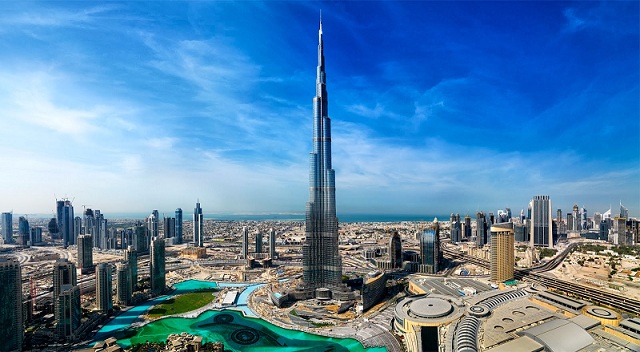Abu Dhabi Business Setup
Registering a business in Abu Dhabi is really easy with us but before registering, know the details of the state. Abu Dhabi is the Federal capital and also the largest of the seven emirates covering more than 85 per cent of land that constitutes the UAE. It’s long coastline extends for more than 400 kms and was once the world’s best waters for pearling and fishing. In 1958, oil was first discovered here in commercial quantities. It holds more than 80 per cent of UAE’s oil reserves and 11 percent of world’s reserve.


This makes it by far the richest and most politically important of the UAE’s seven emirates. Abu Dhabi, besides its oil resources, is famous for The Abu Dhabi Duty Free, which is a major attractor due to its extravagant prizes and one of the finest duty free shopping centres in the world, and also The Abu Dhabi Shopping Festival.
Ruler
His Highness Sheikh Khalifa bin Sultan Al Nahyan, President of the United Arab Emirates, Ruler of Abu Dhabi is the current president of the United Arab Emirates (UAE). He succeeded to the post on November 3, 2004, immediately after High Highness Sheikh Zayed bin Sultan Al Nahyan (reign: 1971 – 2004) passed away.
He had effectively been the acting president earlier, since his father was in ill health. He is also the hereditary emir and ruler of Abu Dhabi.
Government
The National Political System
The United Arab Emirates, with Abu Dhabi as its Capital, has embarked on an ambitious political journey of combining the traditional with the modern, basing the country’s political evolution on the pillars of a modern administrative structure while ensuring the preservation of proud traditions from the past.
As befitting its stature as the largest and most populous emirate, Abu Dhabi has an Executive Council as its central governing organ, chaired by the Crown Prince Sheikh Mohammed bin Zayed Al Nahyan. The Emirate is divided into two regions, the Western Region and the Eastern Region, headed by Ruler’s Representatives. Abu Dhabi the city is administered by a municipality, with its nominated municipal council. Autonomous agencies are also encouraged to exist and are granted their own specific powers – as is the case with the Environmental Agency – Abu Dhabi (EAD).
Infrastructure
Telecommunications
Abu Dhabi and the United Arab Emirates boast one of the most advanced telecommunications services anywhere in the world. For a long time, Etisalat, which the UAE government holds a majority share in, held a monopoly over all telecom services. With the advent of dU however, residents are now poised to benefit from healthy competition and what are hoped to be more favourable terms of use. With nearly a million mobile cellular phone subscribers, it clearly is a burgeoning market.
The telecommunications infrastructure is of a high standard rivalling those of any major country in the world. Within Abu Dhabi, phone calls are free of charge and long distance international calls are relatively pricey, the network providers offer cheap rate periods where charges get slashed sometimes even by half. The network here is GSM compatible, and your international GSM phone with roaming facility should work without a hitch.
Satellite Communications & Broadband Internet
Broadband and dial-up Internet are both readily available, and internet services are efficient for the part. Do keep in mind however that this is a Muslim state, and in keeping with the country’s customs and beliefs, many websites may fall under censorship.
An Infrastructural Boom
As infrastructure projects in the UAE exceed US$300b, Abu Dhabi is more than pulling its weight towards facilitating an estimated US$1.3 trillion plus worth of investments over the 2007-2012 period. The Emirate is currently undergoing several large-scale infrastructure projects, a healthy development for a state which was ranked by the UNCTAD and Erasmus University in 2006 as being amongst the world’s leading destinations for foreign investment. And if further proof of the region’s forward march were needed, the World Economic Forum in its Global Information Technology Report 2006-07′, ranked the UAE as the ‘highest-ranking Arab nation in terms of ‘Networked Readiness’. All of which bodes excitingly well for the high profile projects expected to be executed in the very near future.
Economy
History
Earliest recorded knowledge about the Emirate of Abu Dhabi posits it as a nomadic herding and fishing village. The most significant event leading to the birth of modern Abu Dhabi was a tribal confederation of the Bani Yas in the late 18th Century. Camel herding, date production, fishing, pearl diving and agricultural activities centred around the inland oases of Al Ain and Liwa were the staple of the Abu Dhabi economy up to the mid – 20th Century.
1958 was when oil was first discovered in the Emirate, but its initial impact on the economy was marginal at best. It was Zayed bin Sultan Al Nahayan, brother to the then Ruler, who recognized the potential which oil had to transform Abu Dhabi. Sheikh Zayed soon replaced his brother as the Ruler, and set about bringing his visions of development to fruition.
Post-1971, after the Emirates had gained their independence, saw oil reserves becoming a cornerstone of the economy, with modern high-rises engulfing emblems from the past.
Future
Modern Abu Dhabi, flush from oil reserves driving exponential growth, is known today as the richest city in the world. A national airline, over a 100 new hotels, a thriving cultural renaissance and billions of dollars worth of real state developments are indicative of the Emirate’s willingness to diversify its economy away from just oil. The capital city’s estimated half a million citizens are sitting on what is roughly one-tenth of the planet’s oil reserves, but that hasn’t lulled the Emirate into a sense of lethargy, rather, it seems to be spurring the Rulers on to tread new waters in earnest.
Current investments level out around the 1Trillion$ mark, almost 200Billion$ is estimated to be pumped into developments over the next decade, and the city’s glimmering horizon dotted with dozens of islands, impending skyscrapers, hotels, museums and gargantuan property projects speak of a future which will be nothing if not phenomenal.
For an in-depth look at the prevailing business climate, a detailed study of job opportunities and step-by-step advice on setting up your own business in the United Arab Emirates.
History & Traditions
The Early Years
Earliest recorded reports about Abu Dhabi stretch as far back as the 3rd millennium BC, with the Emirate being characterised by a nomadic herding and fishing community way of life. Somewhere in the late 18th Century, a historic tribal confederation led to the the Bani Yas clan assuming control of the nearer region. From that point upto the mid-20th century, activities like camel herding, date production, vegetable cultivation, fishing and pearl diving managed to sustain the economy.
All of which changed in 1958, with the discovery of oil. In fact, oil did not have a major impact on the Emirate within the first decade or so of it being discovered. It was Sheikh Zayed bin Sultan Al Nahayan who recognised the tremendous potential which oil had to change the Emirate’s fortunes. Post-independence, 1971 to be precise, oil wealth began to be accumulated in the billions, and that period marked the Emirate’s transformation from a sleepy mud-bricked settlement to a modern metropolis of awe-inspiring dimensions.
Architecture – Past & Present
Upto the middle half of the last century, a majority of dwellings in Abu Dhabi were constructed from palm fronds (barasti), with families of greater relative wealth occupying mud huts. That only goes to make Abu Dhabi’s current incarnation all the more unbelievable – in its glistening modern avatar, Abu Dhabi city presents a state-of-the-art picture with broad boulevards, tall offices and large-scale property developments focusing primarily on large hotels, condominiums and office complexes in modern architectural styles. Indeed, the contrast between the simple days of yore and the present is best reflected in the frankly staggering presence of the Emirates Palace – at US$3 billion, reputedly the most expensive hotel ever built.
The Falconry Tradition
Falconry is not just a tradition, it’s a way of life woven deeply into the very fabric of the Emirates, having first been practised in the Greater Arab region well over 7000 years ago. In the past, this noblest of sports was performed on foot or while riding on the back of horses and other chosen animals. Hunting arenas were numerous, spread far and wide, allowing the game to be played out in full glory. The Al Hurr was probably the most significant type of falcon of the period, with its sub-types of Shanghar, Sinari, Adham, Ahmar and Ashqar species.
Today, the falconry season in the Gulf begins in the Fall, when the Houbara begins its migration to its breeding areas by the end of September and the beginning of October. By the end of March, when temperatures rise, they return to their homeland. Experienced Arab falconers are able to capture wild falcons and train them to become good catchers in the matter of days, before releasing them back into the wild at the end of the hunting season.
The Emirates have adopted several protection programmes to ensure the survival of the species and the sport, with the Sheikh Zayed Falcon Release Programme, the Pro-Falcon project, and the Emirates Falconer’s Club doing a fine job in promoting the ethos of sustainable hunting.
For a fun ‘n fascinating window into the rest of the Emirates’ diverse cultural offerings, including helpful little write-ups on the nightlife scene, accommodation and popular tours, do drop by Ebic’s Tourism Section.
Climate
Abu Dhabi’s interesting location, bordering with the Kingdom of Saudi Arabia to the south and the Sultanate of Oman to the east, with the Emirate of Dubai to its north-east and the expansive Persian Gulf to the north makes for some very challenging climactic conditions.
The Middle East is generally observed to be a hot place, and naturally Abu Dhabi is no different. The period between June and September sees temperatures hovering well above the 40ºC (110ºF) mark. This summer season is unrelentingly hot and humid, with visibility reducing sandstorms whipped out from the desert also being common occurrences.
On the plus side, everything’s air-conditioned, and if you don’t make the mistake of venturing outside for long periods during the day, you ought to be fine. Wearing sunscreen lotion with a high SPF factor and drinking plenty of fluids are two things you should constantly be aware of. With sunny blue skies throughout the year, you won’t be complaining of lack of sunshine though!
And it does get better! October to May is a lovely, pleasant period, with the months of January and February being cool and breezy enough to justify the tag of being known as Abu Dhabi’s ‘Winter’. You’ll come across fog in the early mornings, and during these months, a camping trip out in the desert will definitely demand you carry a thick jacket and other protection to combat the stunningly chilly desert winds.
Get A QUICK QUOTE
Setting up a business in the UAE can be an overwhelming experience for the uninitiated but we can make this job truly easy for you. Talk to our expert consultants for free & decide the best course of action for yourself, today.


